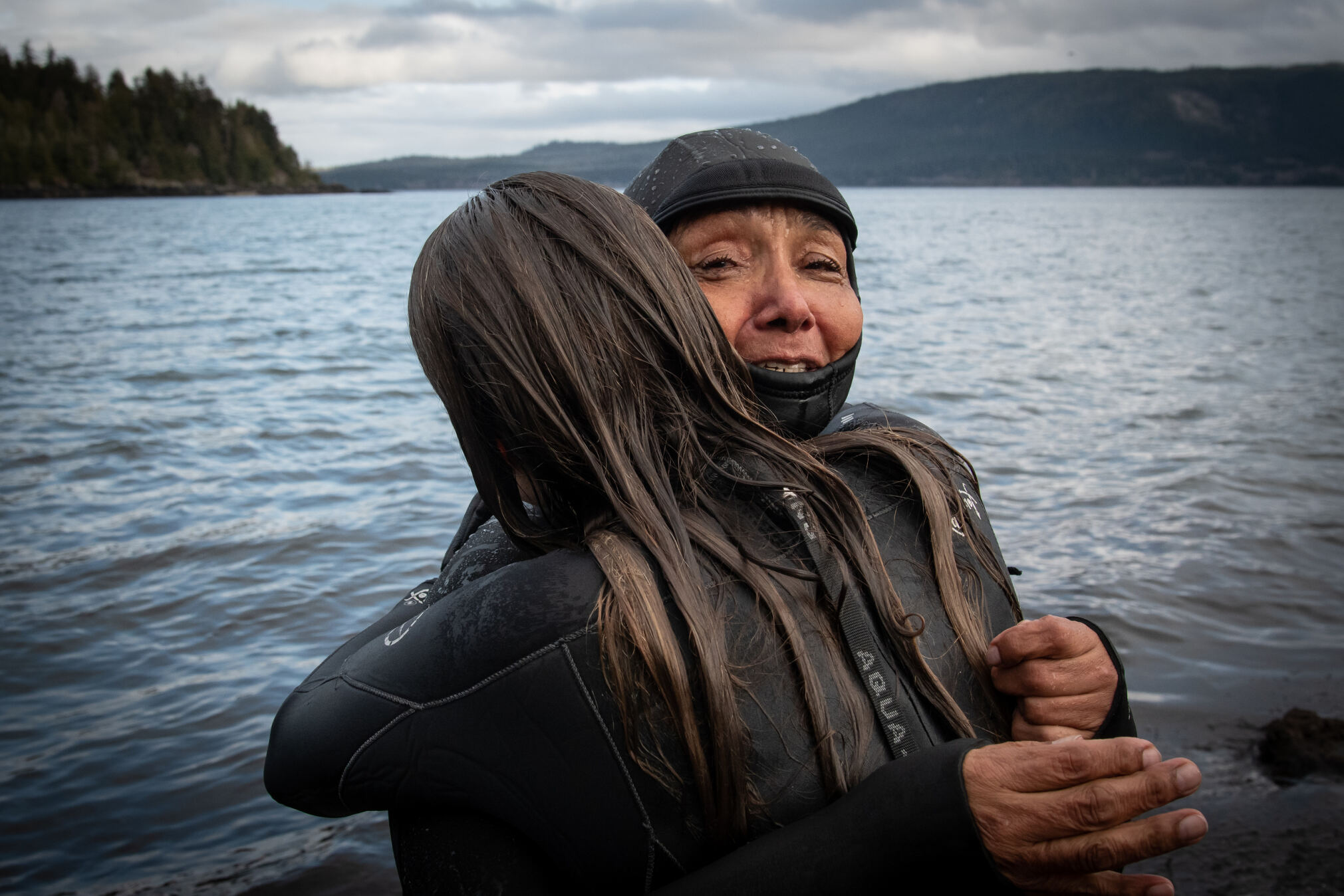How to conduct scientific research with Indigenous Peoples and Lands in a good way
January 16, 2024

January 16, 2024

In the name of “research,” science has often harmed Indigenous Peoples around the world. How can researchers ensure they are conducting their scientific work in a good way, that serves the Indigenous Peoples involved and does not burden Indigenous scholars?
In a comment published in Nature Ecology & Evolution, Dr. Andrea Reid, principal investigator of the UBC Centre for Indigenous Fisheries, Dr. Catherine Febria, assistant professor at the University of Windsor, and Dr. Deborah McGregor, professor at York University, along with their co-authors outline four essential elements for conducting ecological research with and for Indigenous Peoples and Lands in a good way. In this Q&A, they discuss these elements and their importance for all scientific research.
AR: Scientific research has done many harms to Indigenous Peoples around the world. While scholars have begun to call for action towards reconciliation as a means of building ethical and equitable research relationships, including in the natural sciences, more is needed.
For my co-authors and me, most days come with a request from non-Indigenous scholars for advice on how to conduct research with Indigenous Peoples “in a good way.” Often they come from a good place, but the magnitude of how many come through makes replying to all an impossible situation.
DM: Scientists and researchers are not trained in Indigenous studies or research so they lack knowledge about how to engage with Indigenous Peoples. I find engagement with folks tends to carry extra burdens as basic information needs to be conveyed before even discussing a research project.
Thus, the resources and framework we share in the paper are not new, but clearly are not being read widely enough by the research community. We wanted to make it clear that there are massive responsibilities that come with doing work on Indigenous Lands that implicate Indigenous Peoples and they are varied and profound in how they shape our work.
DM: The first is to "recognize that reconciliation can only come after truth." Ecologists should learn about historical and ongoing injustices especially those that have transformed Indigenous relationships to the Lands and Waters they work on, and share these in their work in a prominent position—for instance, on the first day of a conference instead of the last or at the start of a paper and not the end. Colonialism remains an Indigenous reality and this must be recognized and accounted for. If not, then there is a very real risk of re-colonization through research.
The second is to "know that there is no 'view from nowhere'"—that is, there is no neutral or un-situated research and viewpoint. Ecologists, and indeed all researchers, should identify how values and biases shape what we choose to study, what methods we use, and how we interpret data and frame results. We all have assumptions. Name them, and be transparent and accountable.
The third is to "establish free, prior, and informed consent." This goes beyond getting a simple ‘yes’ or ‘no’ and includes outlining what methodologies are being agreed to, for what reasons or purposes, who owns the data and more. We have found a good path is the co-creation of research protocol agreements from the outset of our projects. Indigenous Peoples have also developed their own research and consent processes and researchers must respect them.
The last element is to "learn with and from Indigenous Peoples and Lands." We need to learn from people, place and other biota, including listening to experiential expertise and experts in the work. Reciprocity in research with Indigenous Peoples is a core principle.
AR: To do research in a good way means that we’re doing it in a way that truly stands to benefit Indigenous Peoples and Lands. It stands to enrich our practice as scientists not only by upholding Indigenous rights but deeply enriching what and how we know. The reality is, we learn with the land and with organisms, they’re not just objects of study.
CF: As one of the few non-Indigenous authors in this work, it was important to understand the four elements and work intentionally, consistently and transparently, and help reduce the burden placed on my colleagues and community partners.
DM: Scientific research—or any research—conducted in a good way will yield good outcomes. These outcomes are beneficial for everyone, including the natural world and land.
We honour xwməθkwəy̓ əm (Musqueam) on whose ancestral, unceded territory UBC Vancouver is situated. UBC Science is committed to building meaningful relationships with Indigenous peoples so we can advance Reconciliation and ensure traditional ways of knowing enrich our teaching and research.
Learn more: Musqueam First Nation